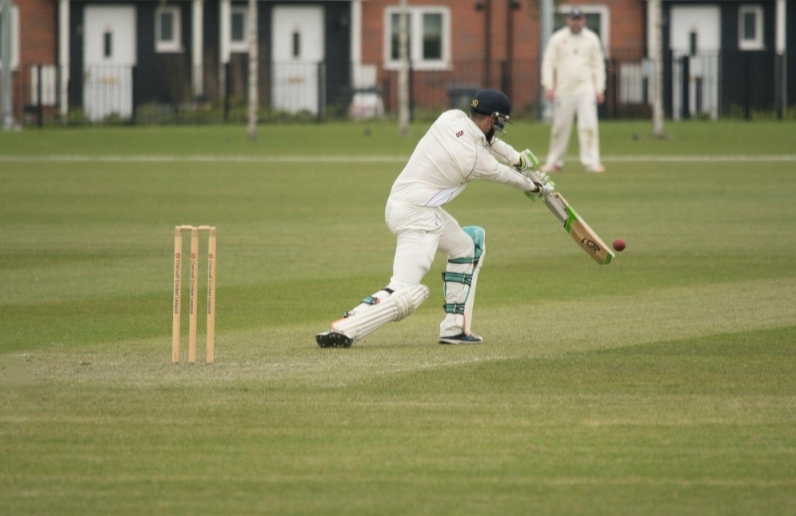Trending Now
- 830 voters names go missing in Kavundampalayam constituency
- If BJP comes to power we shall consider bringing back electoral bonds: Nirmala Sitaraman
- Monitoring at check posts between Kerala and TN intensified as bird flu gets virulent in Kerala
Sports
FIFA World Cup 2018: Egyptian football suffered after Arab Spring; only to rise miraculously and make it to Russia
![]() June 6, 2018
June 6, 2018
At the start of the documentary ‘Egypt, Football and Violence’, the soothing voice of Hazem al Mestikawy over the emotive montage of thousands of fans marching down the streets of Cairo captures the Orwellian world of Egyptian football. “The people in Egypt come out on the streets in millions and celebrate just for two reasons: A huge political change…,” Al Mestikawy, an Egyptian pundit, says before taking a dramatic pause to add, “…or because of football.”
Seven years ago, Egypt’s two biggest obsessions crossed paths in a way not many envisaged. The fans of Al Ahly, a century-old club steeped in nationalist history and a symbol of anti-British struggle, signed a truce with arch rivals Zamalek, seen as the sporting wing of the British army and the ruling elite. The two biggest clubs, at each other’s throats for decades, have often clashed in the often-acrimonious Cairo Derby, spilling blood in the stands.
On January 25, 2011, though, everything changed: Ultras of both clubs, the hardcore, often-violent fans, emptied out of the stands and into the streets to join Egypt’s biggest footballers with a revolutionary zeal to end president Hosni Mubarak’s 30-year rule.
Egyptian football is a heady mix of politics and violence. But that night at Tahrir Square transformed the landscape of sport in the North African nation for ever. In the next few years, hundreds of supporters died in multiple in-stadia violence, the league was suspended more than once, and Egypt’s most famous player, Mohamed Aboutrika, labelled a ‘terrorist’. The national team, once the most dominant force in Africa, could not qualify for the continental championship for three editions following the revolution.
Yet, miraculously, Egypt will be going to Russia. Mohamed Salah scored a calm stoppage-time penalty against Congo in the playoff last October to end their 28-year wait and give the battered nation a reason to rejoice.
When the nation is falling apart, it is tough to care about something as trivial as football, but through this tumultuous decade, the sport has been at the centre of Egypt’s upheaval. “Much of modern Egypt’s history – post Arab Spring – is linked to football,” Professor James Dorsey, a Singapore-based Middle East football expert, tells The Indian Express. “Alongside religion, there is nothing else that evokes that kind of emotion among the people there and fans often use it as a tool of political expression.”
Al Ahly and Zamalek represent two different classes of Egyptian society. The former is the first Egyptian-run club that is seen as Arab and are multiple-time winners of the African Champions League. Zamalek started with a Belgian president and is seen as a mixed team — Ahly fans often tease their rivals as ‘foreigners’.
Their fan groups — Ahlawy and White Knight — were formed in 2007 without any political alignment. But they soon became the voice of the oppressed class against the regime. And within a year, thousands of Egyptians joined them. These were men who weren’t afraid of getting their faces bloodied, often clashing with each other, and the police.
When the Arab Spring came, the Ultras were drawn into it because of their ability to mobilise large crowds and deal with the police. They turned the terraces of Cairo’s football stadiums into meeting points for revolutionaries, eventually leading the march to Tahrir Square.
It was tumultuous, a political change fuelled by football fans. And when they were joined by Egypt’s biggest footballer, the revolution gained legitimacy and momentum it earlier lacked.
In January 2018, a FIFA poll conducted declared Mohamed Aboutrika as the ‘greatest player in Egyptian history.’ The four-time African Footballer of the Year got 56 percent of votes, 20 percent more than Salah. But his government has classified him as a terrorist.
Aboutrika’s flamboyance on the pitch is matched by his enigmatic personality off it. In a country where players shy away from political issues, the Al Ahly star has spoken out against the oppressive regimes in his country and the rest of the Arab world. “The football officials are from the government and the players in Egypt are mercenaries who play for highest bidders,” Dorsey says. “However, Aboutrika has a history of political expression.”
During the Arab Spring, Aboutrika sympathised with the Muslim Brotherhood and came out in support of Mohamed Morsi. Immediately after the revolution, his cult status reached unprecedented heights. But the historic moment in Egyptian history would usher in a dark era for Egyptian football.
The national team was the first to be impacted after Hassan Shehata, who led Egypt to three African Cup of Nations titles between 2006 and 2010, was sacked as coach because of his proximity to Mubarak. In 2012 came the Port Said stadium tragedy, where an acrimonious match between Al Ahly and Al Masry ended in riots so fierce that 74 fans lost their lives. As a consequence, the domestic league was suspended.
One of the more prominent theories behind the violence was that it was an act by authorities to exact revenge following the role played by Al-Ahly Ultras in the Arab Spring.
The coup in 2013, which ended with Abdel Fatah el-Sisi dethroning Morsi as the leader, would result in further retribution. Several members of the Ultras were arrested but what shook the nation the most was the government’s decision to freeze Aboutrika’s assets, alleging him of ‘funding Muslim Brotherhood’. He was later declared a ‘terrorist’. In May this year, the Cairo International Criminal Court placed him on the terrorist list for five more years. Once Africa’s heavyweights, they could not even qualify for the Cup of Nations. In such a scenario, qualifying for the World Cup seemed an impossible dream.
The Port Said tragedy triggered retirements of Aboutrika and his teammates who formed the golden generation of Egyptian football — the likes of Ahmad Hassan and Mido. Only goalkeeper Essam el-Hadary remains from that lot; at 45, he will be the oldest player in Russia. For five years after the tragedy, fans were not allowed in the stadiums. It became a TV sport.
Curiously, it also led to the emergence of the next generation of Egyptian superstars, including Salah. The cancellation of the Egyptian Premier League forced the domestic federation to invite FC Basel for a friendly match in 2012 to keep the national under-23 side busy. Salah’s performance in that match was so good that, within a month, the Swiss club signed him. It also meant Salah became one of the few Egyptian greats who hasn’t played for Al Ahly or Zamalek.
With domestic football coming to a standstill, several players followed him out of the country. Mohamed Elneny, too, joined Basel before moving to Arsenal in 2016; Ahmed Fathi joined Hull City in 2013, Marwan Mohsen joined Portuguese side Gil Vicente in 2014 and Mahmoud Abdel-Moneim secured a move to Swiss side Luzern in 2013.
One of the reasons why Egypt, despite being regional bullies, couldn’t be as consistent as other African nations in qualifying for the World Cup was the reluctance of their players to play in Europe. That changed post-Port Said. Half of the players in Egypt’s provisional squad of 30 ply their trade outside Egypt, unprecedented in history. Egyptian experts see this as the key reason for their team’s qualification after 28 years despite political turmoil – an observation that gains credence with Salah’s increasingly impressive performances for the Pharaohs.
His penalty that secured qualification triggered unbelievable scenes in Cairo and rest of the country. In January 2011, thousands had marched down Tahrir Square for a political change. Last October, they gathered again. This time, to celebrate football.
























